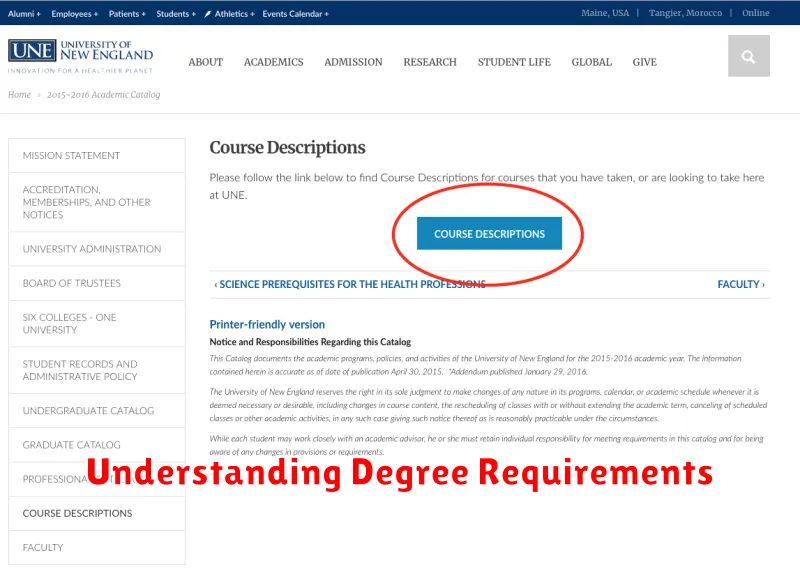Choosing the right university major is a pivotal decision that significantly impacts your future career and personal fulfillment. This comprehensive guide will equip you with the knowledge and tools necessary to navigate the often daunting process of selecting a major. Understanding your interests, aptitudes, and career goals is paramount to making an informed choice that aligns with your individual aspirations. We will explore various factors to consider, including potential career paths, required coursework, and the academic rigor associated with different university majors. From assessing your personal strengths to researching specific university programs, this guide will empower you to confidently choose the right major for you.
The journey to selecting the perfect university major begins with introspection and careful consideration. By evaluating your academic strengths and weaknesses, identifying your career aspirations, and understanding the job market trends, you can narrow down your options effectively. This article will provide practical advice and resources to help you research different university majors, explore potential career options, and ultimately, make a decision that sets you on a path towards a successful and rewarding future. Whether you are a high school student preparing for college or a current undergraduate considering a change in major, this guide will offer valuable insights into the decision-making process and help you confidently choose the right university major to achieve your goals.
Exploring Your Interests and Strengths
Choosing the right university major requires careful self-reflection. A crucial step in this process is identifying your interests and strengths. Understanding what genuinely captivates you and what you excel at can significantly narrow down your options and lead you towards a fulfilling academic path.
Interests are the subjects or activities that pique your curiosity and hold your attention. Consider what you enjoy reading about, discussing, or pursuing in your free time. Do you find yourself drawn to scientific discoveries, artistic expression, or perhaps analyzing complex social issues? Recognizing these patterns can reveal potential academic areas of interest.
Strengths represent your natural talents and developed skills. Reflect on tasks and projects you’ve undertaken successfully. Where do you consistently perform well? Are you a strong writer, a skilled problem-solver, or a gifted communicator? Identifying these strengths can help you pinpoint majors where you’re likely to thrive and succeed. By exploring the intersection of your interests and strengths, you can begin to identify majors that align with both your passions and aptitudes.
Researching Career Outcomes
A crucial step in selecting the right major is understanding its potential career outcomes. Thorough research is essential to make an informed decision and avoid future disappointment. Consider the following:
Typical Career Paths
Investigate the typical career paths associated with each major you are considering. Some majors lead to very specific careers, while others offer a broader range of options. Understanding this distinction is vital for aligning your academic pursuits with your career aspirations.
Job Market Outlook
Analyze the current and projected job market outlook for potential careers related to your chosen major. Fields experiencing growth are more likely to offer ample job opportunities upon graduation. Look for data on salary expectations and job security.
Required Skills and Experience
Identify the required skills and experience for careers you find appealing. This information can help you tailor your coursework, internships, and extracurricular activities to gain a competitive edge.
Understanding Degree Requirements

A crucial step in selecting the right major is thoroughly understanding the degree requirements. These requirements outline the specific courses you must complete to earn your degree. They vary significantly between majors and universities.
Typically, degree requirements are expressed in credit hours or units. Each course is assigned a specific number of credits, and you must accumulate a minimum number to graduate. For example, a Bachelor’s degree often requires 120 credit hours.
Degree requirements generally consist of three components:
- Core Courses: These are foundational courses required for all students in a specific major. They provide the fundamental knowledge and skills in the field.
- Elective Courses: These allow you to specialize within your chosen major. They provide opportunities to delve deeper into specific areas of interest.
- General Education Requirements: These are courses outside your major, designed to provide a well-rounded education in areas like humanities, social sciences, and natural sciences.
Carefully reviewing these requirements will give you a clear picture of the coursework involved and help you determine if the major aligns with your interests and academic goals.
Talking to Academic Advisors

Academic advisors are valuable resources during your major selection process. They possess in-depth knowledge of various academic programs, including curriculum requirements, career prospects, and faculty expertise.
Schedule meetings with advisors from departments you’re considering. Come prepared with a list of questions about the major, such as potential career paths, research opportunities, and required coursework. Don’t hesitate to discuss your interests, skills, and academic goals.
Advisors can offer insights into how different majors align with your strengths and aspirations. They can also help you understand prerequisites and navigate the course selection process. Be open to their suggestions and consider their advice alongside your own research.
Trying Introductory Courses
A practical approach to selecting a major involves exploring introductory courses in fields of potential interest. Introductory courses provide a valuable glimpse into the subject matter, teaching style, and workload associated with a particular discipline.
Actively participate in these courses. Pay close attention to the topics covered, the methods of instruction, and the overall learning environment. Consider whether you find the material engaging and the learning process stimulating.
Reflect on your experiences after completing an introductory course. Ask yourself key questions. Did you enjoy the coursework? Did you feel challenged intellectually? Could you envision yourself studying this subject for several years? Honest reflection is crucial during this exploratory phase.
Considering Double Majors or Minors
Exploring double majors or minors can significantly enhance your academic experience and career prospects. A double major requires fulfilling the course requirements for two separate degree programs, culminating in a degree in both fields. This option demands a significant time commitment and careful course planning.
A minor, on the other hand, involves a smaller set of focused courses in a secondary discipline, complementing your major field of study. It provides a valuable breadth of knowledge and can demonstrate diverse skillsets to potential employers. Choosing a minor that strategically aligns with your major can strengthen your expertise in a specific area.
Consider a double major if you have a strong passion for two distinct fields and are prepared for a rigorous academic workload. A minor is a suitable option if you wish to broaden your knowledge base without the added burden of a second full major. Carefully assess your academic abilities, interests, and career goals before pursuing either option.
Changing Majors if Necessary
Choosing a major is a significant decision, but it’s not necessarily final. Many students discover their initial choice isn’t the right fit. Don’t feel discouraged if you find yourself in this situation. Changing majors is more common than you might think.
If you’re considering a change, carefully evaluate your reasons. Are you struggling academically, or has your interest shifted? Speaking with academic advisors can provide valuable insights. They can help you explore alternative majors and understand the implications of switching, such as potential course overlaps and adjustments to your graduation timeline.
Research potential new majors thoroughly. Look at required courses, career prospects, and departmental resources. Talk to students currently enrolled in those programs to get firsthand perspectives.
While changing majors might seem daunting, it’s often a positive step towards finding a field that genuinely aligns with your interests and goals. Don’t be afraid to explore your options and make a change that will ultimately benefit your academic and professional future.

